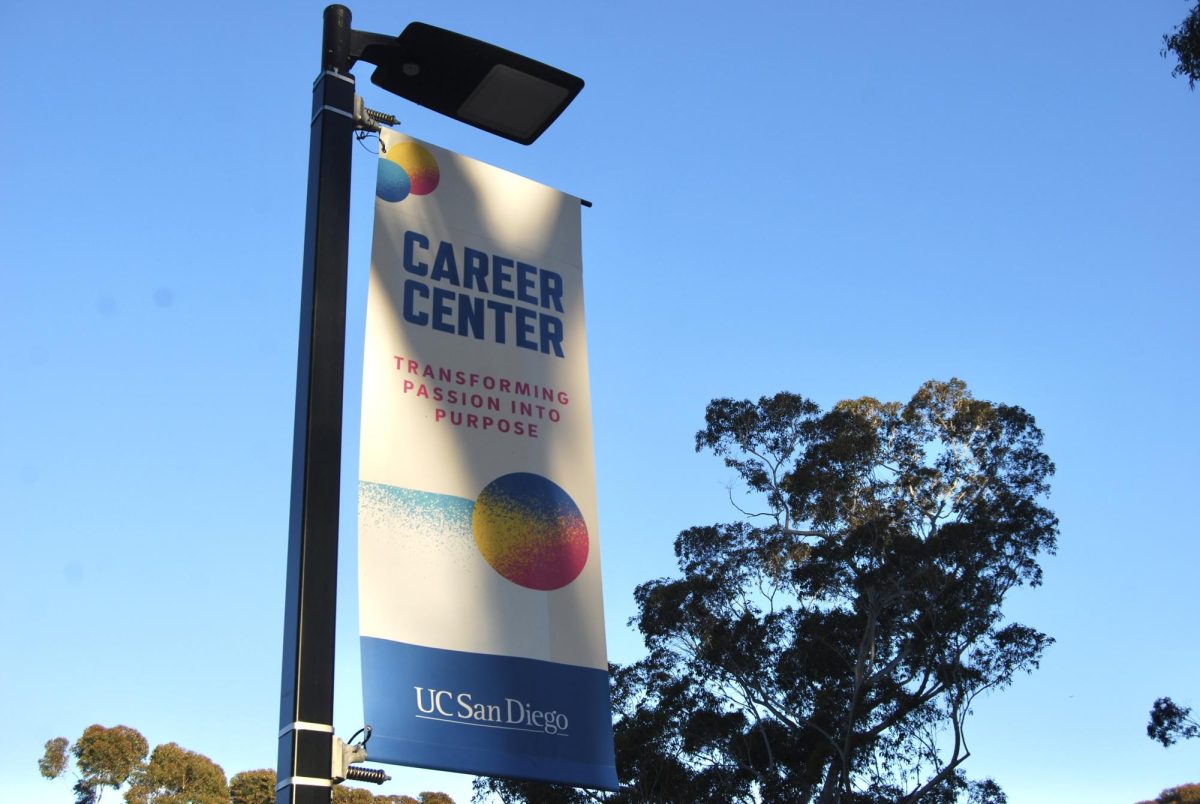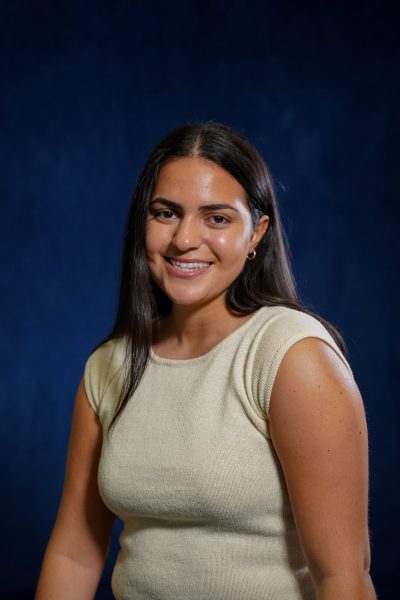With the end of Spring Quarter just around the corner, the clock is ticking for graduating students still deciding on a direction to take after college. While UC San Diego offers five-year concurrent degree programs, career advising, and seven large career and graduate school fairs per year, many students are still left wondering what they will do with their degrees.
According to data from the 2022 UC Undergraduate Experience Survey (UCUES), 41% of UCSD undergraduates planned to pursue graduate or professional school immediately after graduating. The other leading plan for students was going straight into the workforce, with 32% reporting that they planned to work full-time immediately after graduating.
The UC Information Center reports UC graduates earn between $40,000 and $50,000 annually directly after graduating with bachelor’s degrees, typically doubling this salary within 10 years. But even with these impressive numbers, a staggering number of undergrads report being in the dark about their plans for the future. By a wide margin, the third-most common response to the UCUES question “Which of the following best represents your plans for after graduation?” was “I have no idea at this point.”
According to the qualms some students have, the school itself may be at fault for this issue.
As tour guides, the school website, and various social media pages tout, UCSD’s career fairs take place all throughout the school year, generally in the Career Center or on Sun God Lawn. Some even take place virtually over Handshake, and most in-person fairs include virtual options as well. These include both general and specialized fairs, typically focused on science and technology, health, and business.
It’s no surprise that these career fairs are generally not well-attended; both their lack of variety and focus on graduating students may alienate a number of attendees.
The school rarely hosts fairs that aren’t STEM-focused. In fact, UCSD had its first Arts and Humanities Career Fair only six years ago in 2018, and most companies in attendance were still not relevant to humanities majors.
According to Bob Gilworth, former president-elect of the Association of Graduate Careers Advisory Services, “There are more careers fairs than ever, on more campuses than ever, attended by more employers and students than ever.”
More students than ever attend these fairs intending to learn about possible careers and build connections with employers than to actually secure jobs. And with career fair demographics trending younger nationwide, the number of employers looking only to attract graduating students is leaving underclassmen underwhelmed.
While specific concerns differ across academic departments, most UCSD undergraduates seem to have similar issues with finding specific resources to help them with post-grad preparation.
“I do feel like UCSD has prepared me fairly well for grad school, but more lab experience would’ve been better for me,” said Everett Ririe, a Seventh College senior majoring in Physics. After graduating this year, Ririe plans to attend graduate school before earning a doctorate and going into high school-level teaching.
According to Ririe, the need for hands-on research experience — a hard-to-find commodity at UCSD — presents unique challenges for STEM majors transitioning from undergraduate to graduate education.
“Ideally, there would be an up-to-date spreadsheet or list of professors who are looking for new undergrad lab assistants,” Ririe suggested. He argued that this method would much more effectively streamline the process for those who wish to participate in undergraduate research.
“Right now, you basically have to look up your professors one by one, see if their research interests you, then ask to join and hope there’s an opening for you,” he added. “There often isn’t, so you may have to ask several professors before finding something.”
Having information about possible research projects and minimum requirements for prospective students all in one place could save time for both students and professors.
“It would have made the process of finding a lab to join much easier for me,” Ririe said. “I may have been able to join a lab sooner and get more experience.”
Despite UCSD’s strong focus on careers in STEM, Ririe said that there aren’t many career services readily and clearly provided to STEM students outside of Career Center advising sessions.
“I don’t think what we have is sufficient,” he said. “Or if there are more or better resources for us, I don’t know about them, so they should advertise them better.”
James Woolley, a Marshall College senior double-majoring in literature/writing and human biology, expressed a similar sentiment. As someone looking to get a job after graduation, Woolley expressed dismay with the school’s lack of job search support for students across both fields.
“I’ve walked past the career service center almost every day for the past two years, but it basically feels like a decoration on campus,” he said. “I’ve never used it and I don’t know anyone who has.”
According to Woolley, despite the wide disparity between the cultures of UCSD’s biology and literature departments, both are similarly lacking in terms of post-grad preparation.
“Biology focuses on the future. MCAT. Clinical hours. Med school. All things you have to figure out on your own,” he said. “Literature has a much stronger focus on personal development. Growing a portfolio. Fostering relationships. Developing a style. Then pray you can develop enough to make it as a creative.”
Woolley especially noted UCSD’s lack of variety in career preparation for biology students, especially given the extreme focus on pre-med that he’s noticed in his courses.
“Biology education at UCSD often feels like a means to an end,” he said. “Half of the things you learn are just so you can do well on the MCAT, and if you’re not taking the MCAT, it really feels like you’ve been left behind.”
The undergraduate struggle to prepare for graduate school, break into the job market, or simply plan for the future is a cumbersome one. But the lack of Career Center services and organization that many students face isn’t always shared by those studying at UCSD’s graduate schools.
One popular option for students looking to jumpstart their professional careers is UCSD’s five-year concurrent degree programs. Through the Jacobs School of Engineering and the School of Global Policy and Strategy, students can enroll in both undergraduate and graduate-level coursework during their fourth undergraduate year and earn a master’s degree after spending their fifth year as a matriculated graduate student.
Riley Sutton, a current graduate student participating in a five-year concurrent degree program, plans to graduate this year with a master’s degree in International Affairs, specializing in Latin American Studies with a career track in International Management.
While Sutton was initially drawn in by the cost-benefit of receiving another degree in only one more year of school, she was impressed with the data skills and networking opportunities she gained along the way.
Each UCSD graduate school has its own separate and specific career services, seemingly providing much more tangible benefits than those available to undergraduate students. According to Sutton, with incorporated services such as a required career orientation, GPS is very active in grad students’ job search efforts even as they become alumni.
“We have been thinking about jobs and outcomes since before day one,” she said. “I liked this framing; it helped me to have a lot of time to think about my career path, my resume, and my priorities with jobs.”
But even with these crucial services, jobs after graduate school are far from guaranteed.
“Even really well-prepared candidates are getting turned away from jobs for which they are qualified,” Sutton stated. “The one thing that I think GPS Careers could do better is provide more job opportunities for International Management track students. They provide a lot of government, nonprofit, policy, or think tank jobs to us, but private sector positions … tend to get swept under the rug.”
Arguably, completion of a separate grad school program may be beneficial to students’ resumes, helping them appear better prepared when applying for jobs. But for students like Sutton, the benefits certainly outweigh this drawback.
“The MIA taught me a lot more about critical thinking, collaboration, and tenacity,” she said. “Essentially, it challenged me in ways that I don’t think an MBA would have. I think this was ultimately the right choice.”
Although UCSD students face many barriers in pursuing lasting career development, they may have reason to be optimistic about the future of these resources. This year, the Career Center has established the career advice blog Triton Mindset, hosted the first annual Future of Work Conference to discuss the future of the workforce with students, and continued working to expand the variety of fields included in its career fairs. Despite the rocky state of the job market, these efforts should hopefully be indicators of more robust resources in the future.









